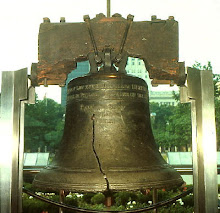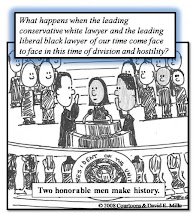
By Norm Kent
A few weeks ago, I had the opportunity to introduce Sheriff Al Lamberti at a rally commemorating the life of Craig Cohen, beaten senselessly last April outside the Peter Pan Diner in Oakland Park, Florida.
Not too long after Craig, 47, was attacked, so too was another young man, David Villanova. There was no rhyme or reason to either assault or beating; just another one of those shocking things we come home to at nite and turn our television on to see.
This assault frustrated the Sheriff and law enforcement. Because both men were gay, there was reasonable speculation that a youth gang was targeting gay men. If that could be established, the attack would be a ‘hate crime.’ But what exactly is a hate crime and how is it different from any other crime? Surprisingly, lots of people still do not know.
Hate crimes, or bias-motivated crimes, are defined as offenses motivated by hatred against a victim based on his or her race, religion, sexual orientation, handicap, ethnicity, or national origin. Not surprisingly, in Florida, for a long time, African Americans have been primary targets. Since 9-11, nationally, Muslims have been increasingly victimized. But for the gay community, when it comes to hate crimes, we have always been the ‘chosen people.’
The most important thing to understand about a crime based on hate is that, if proven, it enhances or increases the penalties for the assailant. That is no small thing, because it can take a simple assault, which is a misdemeanor, and raise it to the level of a third degree felony.
Craig Cohen suffered many months in the hospital after his attack, but now he has died from the injuries. The suspects could be charged with premeditated murder, and may face the death penalty. There is no greater penalty, so that the offense might be a hate crime is inconsequential to those so charged. They already face the maximum penalty.
Since both David and Craig were attacked suddenly from behind, and could not offer detectives any evidence of what the assailants said prior to striking them, there was insufficient evidence to prove up a hate crime by their words.
The next best thing for detectives is to interview the attackers and see if they confess to their intentions. If it was proven that a group of attackers were sitting around in a room and had conspired to go out “and get them some fags,” law enforcement would have the necessary predicate to raise the offense from an aggravated battery where the guys would be facing up to 15 years to a first degree felony where they would be facing life.
Before interviewing the assailants, detectives may have suspected it was a hate based attack on both victims. But preliminary information released to the lawyers of the accused has now suggested that the sexual preference of the victims didn’t factor in when their attackers were planning or committing the crimes. They were just vicious human beings looking to rob someone they found defenseless. To charge the defendants with a hate crime then would subject the count to a motion to dismiss by a seasoned and skilled defense attorney.
The third way of prosecuting the case as a hate crime would be if independent witnesses heard something during the event that proved up the intent and bias of the assailants. A fourth way is if one of the accused turned on the others and said, “yeah, we planned it for the Peter Pan Diner because we knew we would get an easy gay target.” Neither of those circumstances has panned out in this case thus far.
Consequently, even if BSO had the best of intentions, the information they turned over to the State Attorney’s office is insufficient as a matter of law to charge a hate crime penalty enhancement. As to Craig Cohen, it will not matter anymore. Murder is murder and you face the harshest penalty. Where it would matter is if one of the other assailants, who simply watched or witnessed the attack, and did nothing, were charged. Under that circumstance, then a hate crime would boost their potential sentence.
Accordingly, if you are ever unfortunate enough to be exposed to such a tragic circumstance, do your best to keep your wits about you, consciously recording those words or deeds an attacker accosted you with, so that your claim you were the victim of a hate crime will be sustained as a matter of law. Sadly, both as to David and Craig, the swift and sudden assaults, and the grave injuries to each party, prevent the State of Florida from establishing a hate crime so far. That may stink, but that's the law.
Thus, we need not blame the sheriff or the state attorney. Instead, let us blame the culprits for their inexcusable hate. Let us light a candle and remind ourselves that though Craig may not have been targeted because he was gay, many of your brothers and sisters are still, from South Florida’s shores to California’s coasts.
We can pass laws that give us equal rights, but to tame the violence against gays and lesbians everywhere, we must also win the hearts and minds of all Americans to respect us as equally as the laws now provide for.
































No comments:
Post a Comment